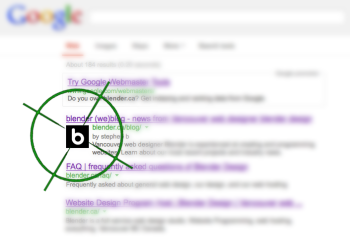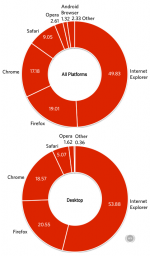SEO tips: trouble with Google algorithm updates
Google regularly updates how they arrive at the search results provided to users. The process is part of the ever changing search landscape; SEOs tweak for best Google positioning and Google tweaks for best search results. You can view a list of Google’s algorithm updates at SEOMoz, a SEO tools provider. Two recent Google algorithm updates have had a particularly significant effect: code named Panda and Penguin.
For Google’s search results to be relevant it has to correctly identify the best answers to user searches. Google works hard in this regard, sometimes with transparency and sometimes not. To it’s credit Google has published Google Webmaster Guidelines for designers and SEOs outlining best practices. To quote Google (emphasis mine):
Avoid tricks intended to improve search engine rankings. A good rule of thumb is whether you’d feel comfortable explaining what you’ve done to a website that competes with you, or to a Google employee. Another useful test is to ask, “Does this help my users? Would I do this if search engines didn’t exist?”
…
Avoid the following techniques: Automatically generated content, Participating in link schemes, Cloaking, Sneaky redirects, Hidden text or links, Doorway pages, Scraped content, Participating in affiliate programs without adding sufficient value, Loading pages with irrelevant keywords
All of the techniques Google mentions have at one time or another been common practice to either promote websites or create website content. (more…)
security alert: Twitter hacked
Twitter announced on Friday February 1st they had been hacked in a sophisticated attack. Twitter said 250k accounts may be affected and have emailed those users. The stolen data included accounts, emails, addresses, and passwords. Whether or not Twitter contacted you it is probably a good idea to change your password, both for your Twitter account and for any other login that uses the same password. It is not a difficult matter to find more logins associated with the same email address, especially for popular services like Google, Facebook, etc.
Web Browser Usage Statistics
Website Ars Technica has compiled visitor browser use statistics updated for March. Internet Explorer continues to be the most popular browser with roughly 50% of users. The next two most popular are Firefox and Chrome. The two graphics here show over usage including mobile, and desktop only. Note that Safari use doubles as you move from desktop to overall visitors — this reflects iPhone and iPad.
Tracking visitor browser usage is important as each browser and platform has its own particular considerations. Mobile browsers have tiny screens, iPads and touch based, desktops have large screens. All of these must be considered in website design.
Guide to Website Optimization
Web Design Ledger (WDL) has posted a thorough SEO guide with sections focusing on Website Factors & Site Architecture Factors and Content Factors
This guide is intended to be a cheat sheet that allows you as a designer or developer to really bake SEO into the projects you are working on – saving your clients time and money in the long run as well as making the process much more seamless for them and your life a heck of a lot less stressful, well at least no more SEOs bugging you to make changes!
Web Design Info Graphic from WDL
Web Design Ledger (WDL) has put together an info graphic featuring essential components of a website design and the people who make them. visit WDL





